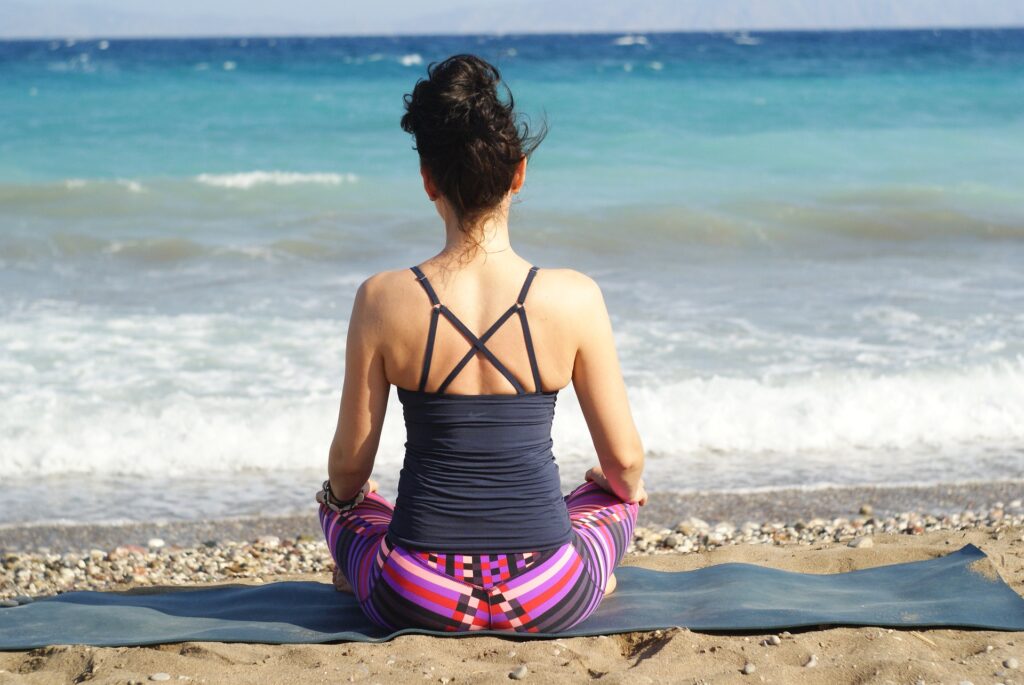
What is a 10 minute meditation for sleep? Guided sleep meditation is a short meditation that can be done to help you relax and calm your mind before going to bed. This can improve the quality of your sleep, and it’s easy to fit into your daily routine. A 10 minute meditation for sleep can help you fall sleep and stay sleep.
The benefits of guided sleep meditation include:
A 10 minute meditation for sleep can help reduce stress and anxiety, improving your relaxation response, and reducing the time it takes you to fall asleep.
A meditation technique called mindfulness can improve sleep quality by lowering your stress levels and allowing you to focus on the present moment. This approach can be particularly helpful for adults with chronic insomnia who struggle to get a good night’s rest.
The first step in a sleep meditation is to focus on your breathing. Then, notice any body parts that feel tense or heavy, and consciously relax them.
When you notice that your thoughts are wandering away, bring them back to your breath, again and again. When you’re finished, move to the next part of your body and repeat.
Counting your breath is an easy way to halt any worrying thinking that might be getting in the way of a good night’s sleep. Start with one, then two, and so on, until you’ve counted ten.
Visualizations are also helpful for sleep meditation, as they can help you focus on calming images while letting anxious or fearful ones go.
There are many different meditation techniques to try, but a few that are likely to work well for you include mindfulness meditation, guided meditation, and visualizations. The key is to find a technique that fits into your lifestyle and works best for you.
5 ways to use a 10 minute meditation for anxiety
Meditation is a simple, easy, and free practice that anyone can do. It improves physical and mental health, reduces stress and anxiety, normalizes blood pressure, and helps with depression.
There are a number of benefits from meditating, but the five that have been most studied are:
Increases well-being and resilience
Regularly practicing meditation can help you recover from stress and build your resilience so that it doesn’t cause you as much damage in the first place. It can also decrease the amount of the hormone cortisol your body produces.
Improves sleep and energy levels
Daily meditation can help you sleep better, and it can increase your energy level throughout the day. Meditation can also improve your focus and reduce your tendency to multitask, helping you stay focused on the tasks that are important to you.
Enhances self-love and compassion
One of the most powerful things you can do to combat stress is to practice loving-kindness meditation. During this type of meditation, you imagine yourself in other people’s shoes. This can help you connect with them on a more personal level.
Make it a habit to meditate each and every day. You can start with 10 minutes a day and gradually increase it as you feel ready.
Set a timer
The easiest way to ensure you don’t miss your meditation is to set a timer on your phone or any other device that you use frequently. Just be sure to set a reasonable amount of time, so you don’t feel rushed.
The spiritual benefits of meditation
Meditation is a great way to experience spiritual benefits. It can lead to a number of spiritual awakenings including peace, joy and love.
It can help you find your life purpose and empower you to live the best life possible.
It can help you find spiritual enlightenment, which is a high point on the Buddhist journey to nirvana (a state of total awareness).
In addition to the spiritual benefits of meditation, it can also benefit your health. Studies have shown that practicing mindfulness-based stress reduction can help you reduce instances of depression, which is good news for anyone looking to improve their mental and physical health.

The benefits of meditation may vary from person to person, but most people will experience some level of relaxation and calmness after a few sessions. This is because spiritual meditation focuses on settling your mind and emotions.
To begin, sit comfortably in a quiet spot, away from distractions. Close your eyes and gently breathe in and out.
When thoughts come up, notice them and acknowledge them without judgment. Then, bring your attention back to the object of focus and return to breathing.
Once you are able to do this, you can try a longer meditation session. If you are a beginner, start with five minutes and increase your time as you gain experience.
Eventually, you will be able to meditate for thirty minutes or more, which is the recommended minimum amount of time for most meditation practitioners. However, if you struggle to make it that long, start with two or three minutes and work your way up.
The benefits of meditation to relieve stress and anxiety
If you’re suffering from stress and anxiety, meditation may be a great way to relieve your mental health. It’s a tried-and-true practice that can be done anywhere, anytime. It’s free, easy to learn and won’t take up too much time or money.
Meditation can help you manage your stress levels by promoting the relaxation response. This involuntary response calms down physical functions such as breathing, heart rate and blood pressure. This can reduce your stress and anxiety in the long run, according to Vermani.
It can also help prevent your mind from skipping past the present and slipping into the future. By meditating, you can stop your thoughts and focus on the moment, which can help you avoid a snowball effect of negative thinking that can affect your mental and physical health.
There are a number of different types of meditation that can help you relieve your stress and anxiety. Some are easier to use than others, but all are beneficial for your mental health.
Body Scan Meditation
A body scan meditation is a form of progressive relaxation that helps you mentally scan for uncomfortable or tense feelings in your body. These feelings can be as simple as a tight stomach, clenched fists or shoulder tension.
Count Your Breaths When you’re first starting out, breathing meditation can be a little challenging. The more you practice, the more comfortable it will become. Try focusing on your breaths for five minutes at a time and counting them as you inhale and exhale.
If you liked the article, please donate!
